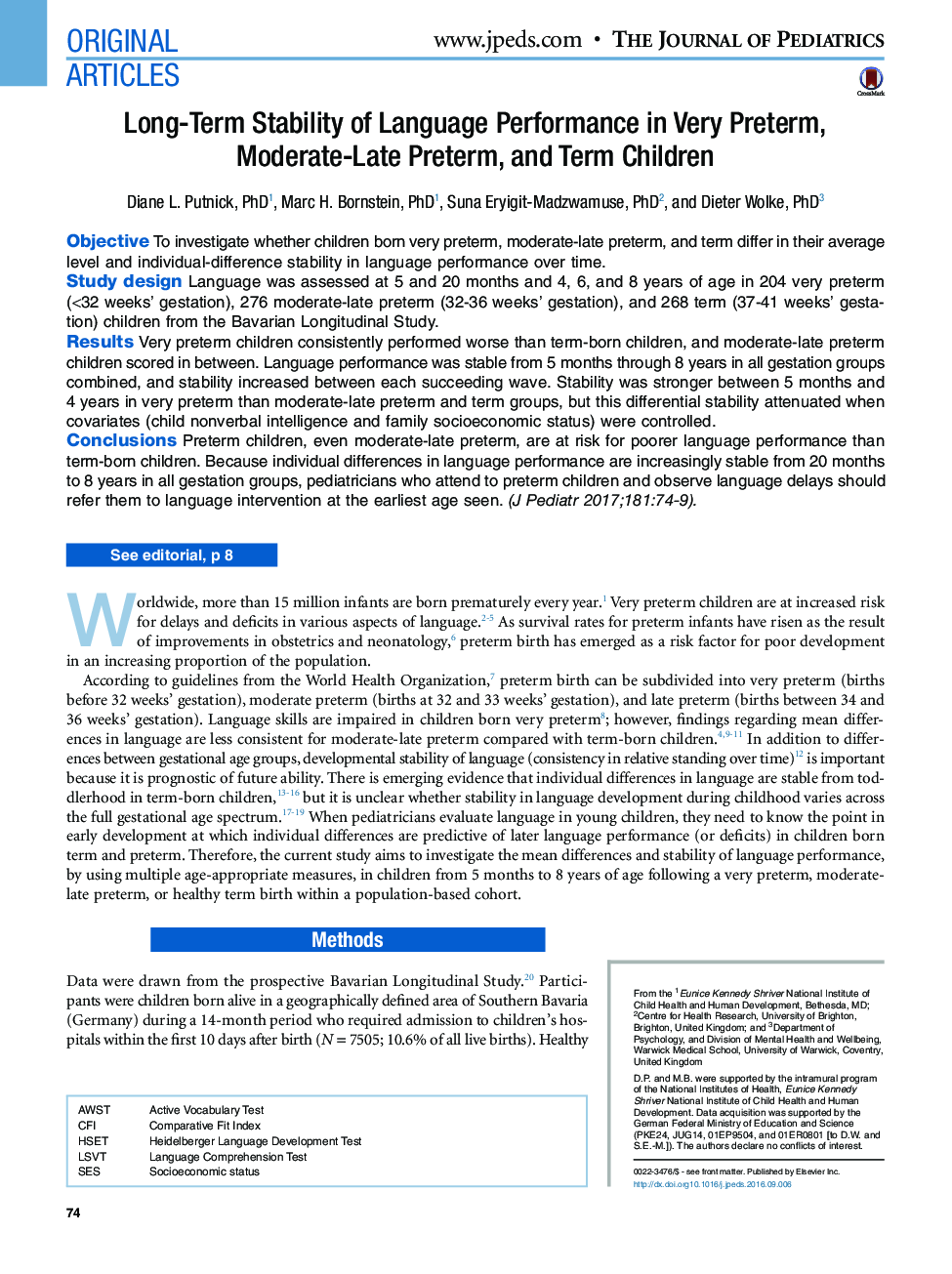| Article ID | Journal | Published Year | Pages | File Type |
|---|---|---|---|---|
| 5719189 | The Journal of Pediatrics | 2017 | 9 Pages |
ObjectiveTo investigate whether children born very preterm, moderate-late preterm, and term differ in their average level and individual-difference stability in language performance over time.Study designLanguage was assessed at 5 and 20 months and 4, 6, and 8 years of age in 204 very preterm (<32 weeks' gestation), 276 moderate-late preterm (32-36 weeks' gestation), and 268 term (37-41 weeks' gestation) children from the Bavarian Longitudinal Study.ResultsVery preterm children consistently performed worse than term-born children, and moderate-late preterm children scored in between. Language performance was stable from 5 months through 8 years in all gestation groups combined, and stability increased between each succeeding wave. Stability was stronger between 5 months and 4 years in very preterm than moderate-late preterm and term groups, but this differential stability attenuated when covariates (child nonverbal intelligence and family socioeconomic status) were controlled.ConclusionsPreterm children, even moderate-late preterm, are at risk for poorer language performance than term-born children. Because individual differences in language performance are increasingly stable from 20 months to 8 years in all gestation groups, pediatricians who attend to preterm children and observe language delays should refer them to language intervention at the earliest age seen.
